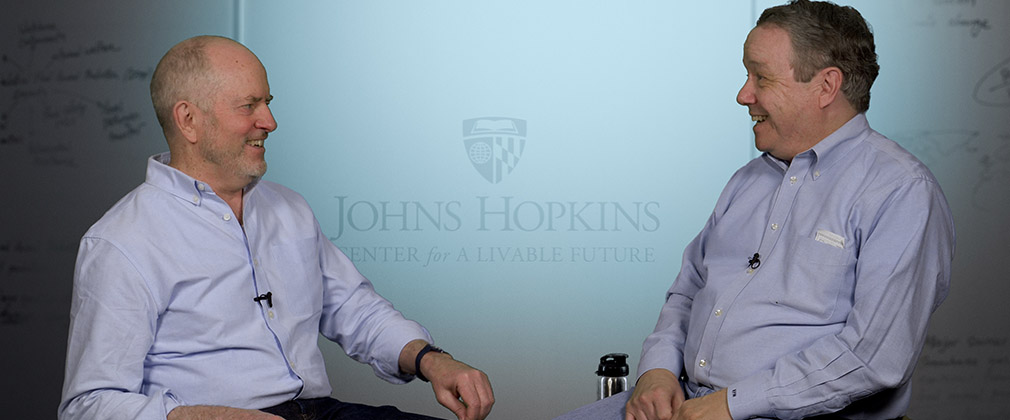CLF Stalwart Bob Martin Steps Back, Reflects
Few advocates for a more fair and sustainable food production system have been at it as long or persistently as Bob Martin. A self-described "prairie populist" with Kansas roots, Bob operates from a tradition of sticking up for regular people and farmers against entrenched economic interests. (He's careful to distinguish his form of populism, rooted in multi-racial struggles for economic justice, from the now-ascendent right-wing variety). Bob recently retired from his post as director of the Center for a Livable Future's Food System Policy Program, to open time for doting on his grandchildren from his home in rural Pennsylvania. Happily for us (and for the broader push to transform food production), he remains a resource for the Center, taking a role as senior adviser.
On his last full day at our Baltimore offices in his previous capacity, I caught up with Bob to ask him about his long career—from his start as a student journalist at the University of South Dakota in the 1970s; to his years as a policy and communications staffer for various farm-state Congressional members; to his shepherding of the landmark report "Putting Meat on the Table: Industrial Farm Animal Production in America," published in 2009, while Bob served as executive director of the Pew Commission on Industrial Farm Animal Production. We talked about the long struggle to rein in the harms of industrial food animal production: what has been achieved over the past generation, and the long road that remains ahead. In his trademark blue Oxford button down (I donned one too for our chat, in homage), Bob exudes aw-shucks Kansas nice. But as you'll see from the interview, that low-key veneer belies a razor-sharp strategic mind and a fierce commitment to creating a robust and ecologically sound food future.
